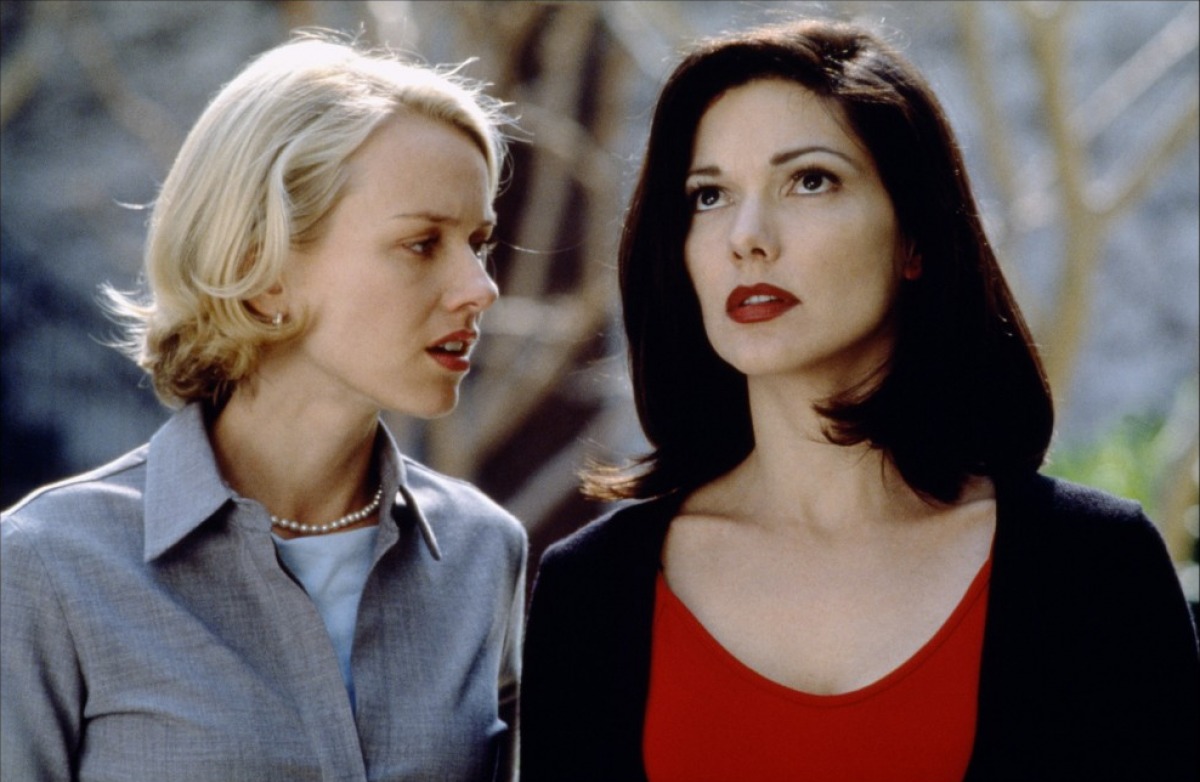
Mulholland Drive, David Lynch’s 2001, puzzling neo noir mystery-drama recently topped BBC Culture’s poll of the 21st Century’s 100 Greatest Films. It was a resounding triumph for the film because the poll asked 177 film critics from 36 countries to name their favourite films of the last 16 years.
Despite beating the likes of Paul Thomas Anderson’s There Will Be Blood, Wong Kar-wai’s, In the Mood for Love and Hayao Miyazaki’s Spirited Away, the result came as a surprise to few as Mulholland Drive has been the darling of film critics since its release and often features in lists of the greatest films of all time.
This list will look to explain exactly why, despite many able contenders, Mulholland Drive deserves to top BBC Culture’s poll and why it is a masterpiece of American cinema.
1. Lynch manipulates our expectations like other directors manipulate lighting
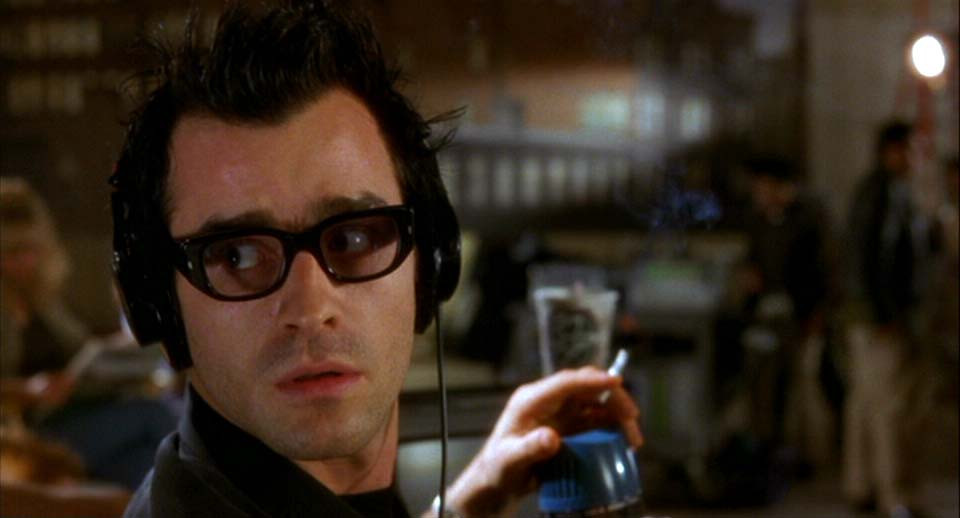
The expectations he plays with have been forged from the language of film that audiences have developed over time. An example of this is when the camera zooms in on Naomi Watts’ character’s face when she first sees Justin Theroux’s character which tells the audience that this is love at first sight or at least suggests an infatuation that will result in Theroux’s character casting her in his film.
However, this is not how the scene plays out and this is one of a litany of examples where Lynch can be seen to be setting up expectations only to completely deceive, all the while making you believe the artifice that has been presented to you.
To continue to do this repeatedly for the entire length of the film is quite an achievement but every time the rug is pulled out from underneath, the audience is also left dangling which allows them to fully engage with the terrifying nothingness that is at the heart of the film.
2. The film’s capacity for ideas is endless
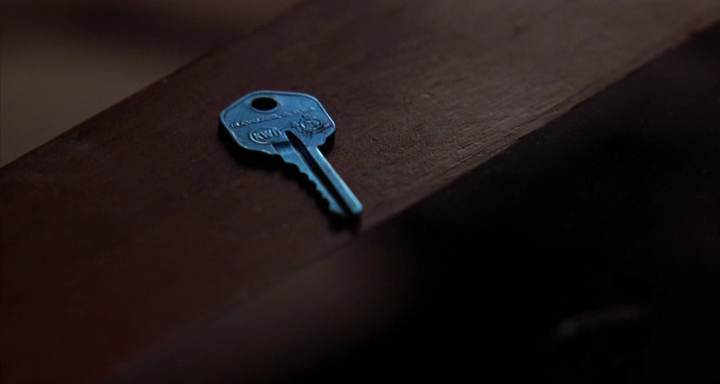
It inspires countless possible explanations as to what the film is about; is the story non-linear? Is it a dream? Is it partially a dream and partially a nightmare? Is it a collective dream? If it is all a product of Naomi Watts’ character’s subconscious then whose point of view do we inhibit after the character is dead? Is it still a manifestation of the dead character’s subconscious until the brain finally shuts down? Who is the cowboy?
Lynch does not offer a definitive answer to any of these questions and the film can be commended for the amount of questions it leaves the audience demanding answers to. However, screenwriters will tell you that it should be possible to explain a film in one word and if nothingness is the word that explains Mulholland Drive then perhaps expecting answers suggests an optimism you shouldn’t be bringing with you to the film.
3. The film is a ‘poisoned valentine’. Despite the film’s homages to past films, it is a critique of Hollywood, the market forces that dictate it and the medium of cinema in general
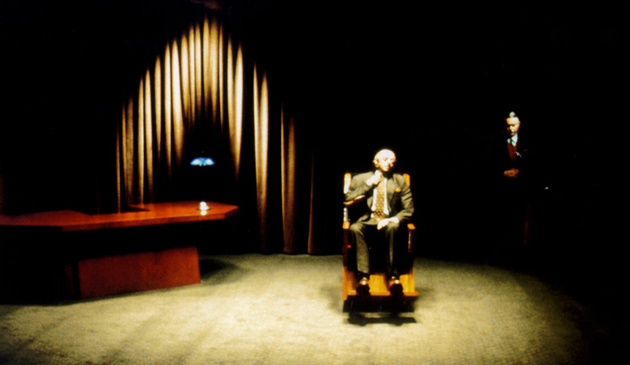
The film is a very deliberate satire of Hollywood and one of the best examples of such, certainly since Billy Wilder’s Sunset Boulevard (A film that Lynch has admitted is one of his favourite films from the classical Hollywood period). And just like Sunset Boulevard, Mulholland Drive is much more about the hegemonic power of Hollywood and its poisonous underbelly as it is about the allure of tinsel town.
The film affectionately recreates the fantastical Hollywood that is often presented in film, infusing it with a melodramatic dream-like quality and inserting references to past Hollywood films.
However, the films ultimate rejection of everything expected of American cinema is a commentary on the evils that underlie the film industry and particularly what it does to those, like Watts’ character, who dare to dream about working in the business.
4. The film champions the spirit of independent cinema
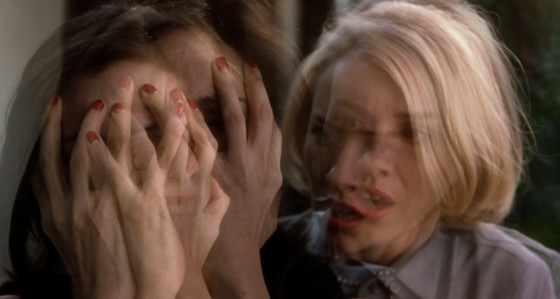
The championing of the nebulous spirit of independent cinema is a theme that has been apparent in much of Lynch’s work but is perhaps most apparent in Mulholland Drive due to the film being a ‘poisoned valentine’ to Hollywood.
This rejection of Hollywood is rather fitting because independent cinema is defined much more by what it is not, than what it is. Mulholland Drive is aware of this as Lynch can be seen to use traditional Hollywood tropes, only to subvert them later to make the rejection of classical Hollywood more striking.
An analysis of the film’s narrative further positions Mulholland Drive as being a champion of American independent cinema as the fact that the film is virtually impossible to understand on first viewing is perhaps more anathematic than anything to dominant Hollywood cinema and the capitalist ideology it is implicit in. Lynch’s decision to center the film on a lesbian relationship also has a radical potential as traditionally it has largely been left to American independent cinema to deal with LGBT issues.